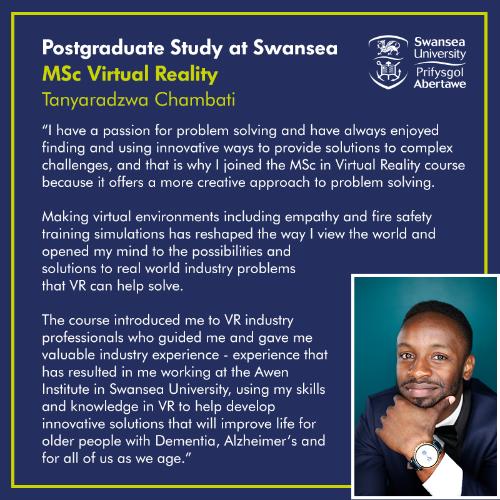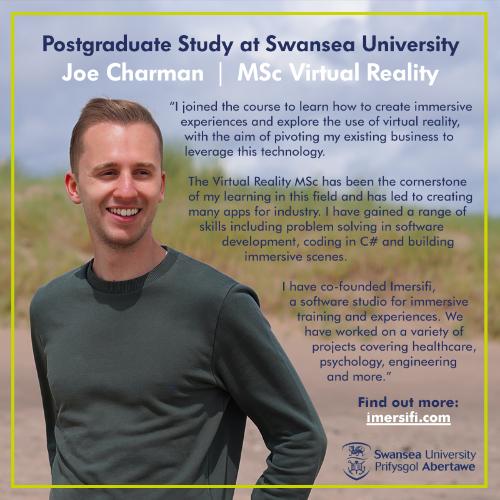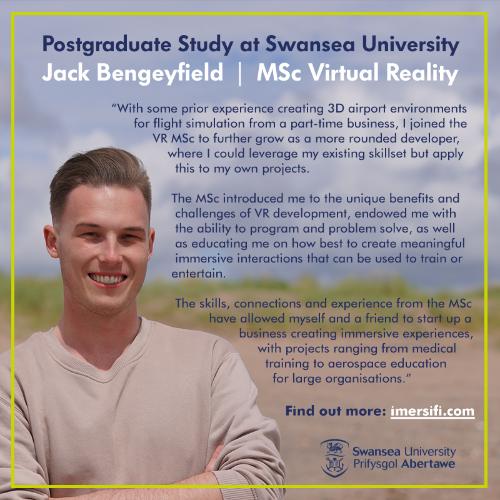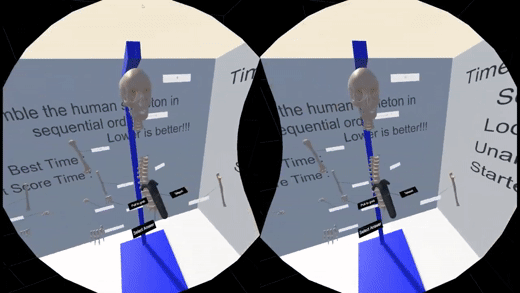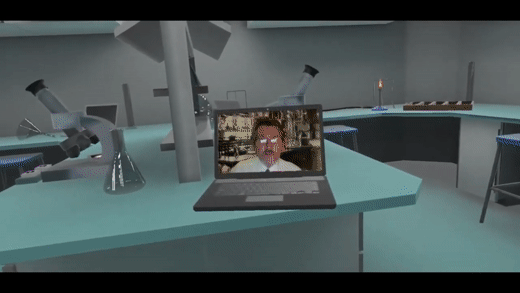Course Overview
Welcoming graduates from all subject areas, this course exploits and encapsulates the knowledge you have acquired from any degree background into a VR environment that can be deployed in an exciting, interactive and immersive way for commercial, medical, research, educational or even entertainment purposes, broadening your intellectual skills from a narrower base of undergraduate knowledge into a multidisciplinary skill set.
This course offers you the opportunity to do an additional year for an Industry Placement or project, giving you valuable work experience and the opportunity to improve technical plus interpersonal skills.
Read our MSc Virtual Reality Guide
This programme aims to:
- Provide graduates with an overview of XR technology and applications
- Enable graduates to understand and apply modern VR technology in the context of social, economic and technical challenges and to take a holistic and multidisciplinary approach to problem solving
- Define and develop effective computer based applications
- Enable graduates to reflect on the importance and individual strengths and weaknesses in entrepreneurial and innovative thinking and to effectively utilise idea generation and problem solving techniques
- Explore theoretical views on media, marketing, culture and human centred design through the project design process
- Engage with organisations effectively to develop project plans


